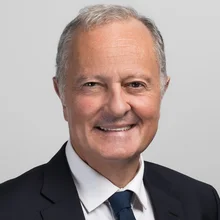
Commodity and energy finance house of the year: Societe Generale
Energy Risk Awards 2023: Bank leads on raft of pioneering commodity deals globally

Rising interest rates and inflation, geopolitical tensions and macroeconomic concerns, commodity price uncertainty and environmental risk have all made commodity financing dauntingly challenging in recent months.
Against these difficult conditions, Societe Generale’s energy and commodity financing team had an outstanding year in 2022, working on a plethora of landmark deals across the commodities and energy landscape. The bank led the way in renewables financing, pushing forward an array of onshore and offshore wind transactions, battery storage, solar and geothermal projects. It also took a lead role in a string of innovative financings in the power and utilities, oil and gas, and metals and mining sectors, as well as driving a new asset class of financing for interconnectors.
A notable example of the latter was a non-recourse financing to support the construction of the NeuConnect interconnector that will link the power grids of Germany and the UK. Scheduled to start operating by 2028, NeuConnect will have a capacity of 1.4 gigawatts of electricity flowing in either direction between the two countries allowing, for instance, German renewable generators to supply the UK market when production is high, reducing UK carbon-emitting generation.
The £2.4 billion ($3 billion) transaction is the largest privately financed interconnector in Europe and is supported by a complex, multi-currency and multi-borrower financial structure designed by Societe Generale.
The deal faced several major challenges such as creating a consistent regulatory framework across two different jurisdictions. Additionally, rising commodity prices and competing demand from multiple projects meant there needed to be intense negotiations with construction tenderers and a strong contractual framework to achieve a bankable risk allocation.
“A novel feature of the financing was raising debt in both euros and pounds sterling, which was facilitated by having several borrowing entities,” says Federico Turegano, global head of natural resources and infrastructure. “The financing was raised based on a ‘single risk’ approach whereby any lender to any of the project’s borrowers takes the same risk as all others.”

In another key deal, Societe Generale acted as mandated lead arranger (MLA), underwriter and hedge provider, alongside other financial institutions in the $14.3 billion financing of Brookfield Infrastructure Fund’s joint venture with technology firm Intel, to develop and construct a semi-conductor manufacturing plant. This transaction was one of the largest project financings in the Americas last year, according to Refinitiv.
Among the initial banks, Societe Generale was able to provide $1.53 billion of underwriting commitment to enable Brookfield to sign the transaction with Intel with committed financing in hand and to allow the project to reach financial close.
Societe Generale was also part of the largest single transaction in the North American renewable sector last year, the $6 billion Champlain Hudson Power Express (CHPE) to be developed by Transmission Developers Inc (TDI).
CHPE is a fully permitted 338-mile transmission line that will deliver up to 1,250 MW of renewable, reliable, low-cost power from Canada to New York City. Some 70% of the state’s electricity has to come from renewable resources by 2030. CHPE will supply 10.4 terrawatt hours a year of low-cost renewable energy, representing around 20% of New York City’s total power needs and decreasing carbon emissions annually by around 3.9 million metric tons.
The CHPE financing presented unique structural features that Societe Generale, as sole financial adviser, needed to address. These included flexible equity funding during construction, deal-contingent hedges during the development period and underwriting that allowed the execution of major construction contracts in the face of a challenging lending and debt environment.
To mitigate rising construction costs and interest rates in mid-2022, Societe Generale and three other project finance banks arranged an underwritten solution that allowed CHPE to execute major construction contracts and lock in a significant portion of costs.
“The transaction was launched into a crowded project finance market but cleared with an additional 21 lenders,” says Olivier Musset, global head of the energy group.
Meanwhile, in a landmark renewables deal, Societe Generale acted as MLA and hedge provider in the $985 million project financing of a ‘round-the-clock’ renewables project in India. The project, developed by ReNew, requires – through a 25-year power purchase agreement – delivery of a minimum of 400 MW of capacity on a non-intermittent basis. To achieve this, ReNew will set up 1,300 MW of renewable energy capacity along with 100 MWh of battery storage across four sites in India.
“The project is a very innovative and game-changing transaction for the Indian market directly addressing the intermittent nature of renewable power,” Musset says. “The project will move the industry closer towards replacing thermal power with green energy.”
Only users who have a paid subscription or are part of a corporate subscription are able to print or copy content.
To access these options, along with all other subscription benefits, please contact info@risk.net or view our subscription options here: http://subscriptions.risk.net/subscribe
You are currently unable to print this content. Please contact info@risk.net to find out more.
You are currently unable to copy this content. Please contact info@risk.net to find out more.
Copyright Infopro Digital Limited. All rights reserved.
As outlined in our terms and conditions, https://www.infopro-digital.com/terms-and-conditions/subscriptions/ (point 2.4), printing is limited to a single copy.
If you would like to purchase additional rights please email info@risk.net
Copyright Infopro Digital Limited. All rights reserved.
You may share this content using our article tools. As outlined in our terms and conditions, https://www.infopro-digital.com/terms-and-conditions/subscriptions/ (clause 2.4), an Authorised User may only make one copy of the materials for their own personal use. You must also comply with the restrictions in clause 2.5.
If you would like to purchase additional rights please email info@risk.net
More on Commodities
Energy Risk Asia Awards 2024: The winners
Winning firms adapt to change with exemplary risk management skills
Foreign funds are bulls in China’s onshore commodity futures
Growing participation from overseas investors is boosting liquidity in what’s already a boom market
Energy Risk Software Rankings 2024: IT demands increase amid rising risk
Heightened geopolitical and credit risk increase requirements on commodities software
Energy Risk Asia Awards 2023: The winners
Winning firms demonstrate resilience and robust risk management amid testing times
ION Commodities: addressing the market’s recent pain points
Energy Risk Software Rankings winner’s interview: ION Commodities
Energy Risk Commodity Rankings 2023: adapting to new market dynamics
Winners of the 2023 Commodity Rankings provided reliability when clients faced extreme change
Energy Risk Software Rankings 2023: managing uncertainty
Unpredictable markets make CTRM software choices key
Navigating the volatility and complexity of commodity markets
Commodity markets have experienced significant challenges since the Covid-19 pandemic, the conflict in Ukraine and the subsequent sanctions imposed on Russia. These unprecedented events have caused fluctuations in supply and demand, disrupted global…
Most read
- QIS 3.0 ‘bonanza’: hedge funds pivot from options to swaps
- Japan’s regulator stands firm behind Basel as peers buckle
- Hedge funds flock to US swap spreads on SLR easing talk























